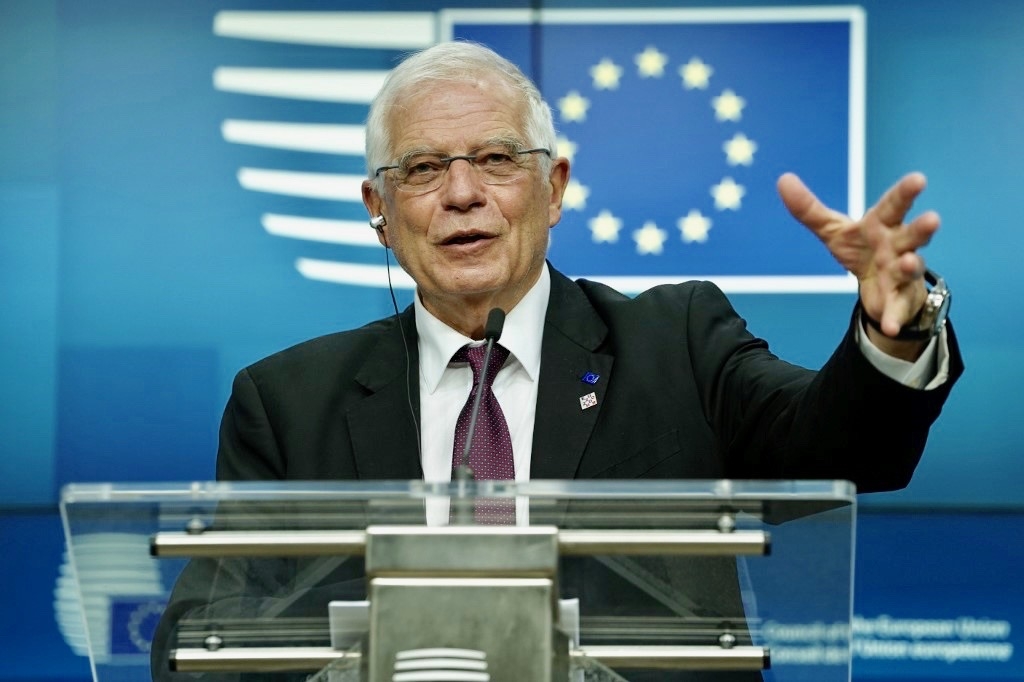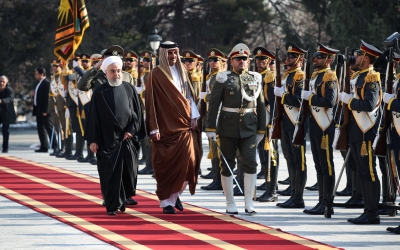European powers urge Iran to return to nuclear deal

France, Germany and Britain on Sunday called on Iran to return to "full respect" of its commitments under Tehran's 2015 nuclear accord with world powers.
All three European parties to the pact have maintained their commitment to saving the deal despite a call by US President Donald Trump last week to join him in walking away.
The European signatories to the deal have sought to salvage the accord intended to limit Iran's nuclear ambitions after it began unravelling when Trump pulled out the United States in 2018.
"It is essential that Iran return to full compliance with its commitments under the agreement," a joint European statement said, according to AFP.
"We have expressed our deep concern at the actions taken by Iran in violation of its commitments since July 2019. These actions must be reversed."
“We are of the opinion that this agreement makes sense because it holds Iran to not developing nuclear weapons, and so we want this agreement to have a future,” Germany’s Foreign Minister Heiko Maas said upon arrival at an emergency meeting of EU ministers in Brussels on Friday. “But of course, it only has a future if it is complied with, and we expect that from Iran,” the Euractiv website quoted him as saying.
Earlier on Friday, French Foreign Minister Jean-Yves Le Drian warned that without action, Iran may soon be in a position to develop a nuclear bomb.
“If they continue to unravel the Vienna accord then yes in quite a short period, between one and two years, they could have a nuclear weapon, which is unimaginable,” he told France’s RTL radio.
Last week, Trump said in a televised address: “As long as I am president of the United States, Iran will never be allowed to have a nuclear weapon.”
The EU’s chief diplomat Josep Borrell has invited Iranian Foreign Minister Mohamed Javad Zarif for talks to Brussels, but a date for his visit has yet to be set.
The joint statement confirmed their position after Iran's admission early Saturday that it had accidentally shot down a Ukraine International Airlines plane, killing all 176 people aboard.
The three signatory countries and their EU partners shared "fundamental common security interests", said the statement.
One of those interests "is upholding the nuclear non-proliferation regime, and ensuring that Iran never develops a nuclear weapon. The Joint Comprehensive Plan of Action (JCPOA) plays a key role in this respect."
Committed to JCPOA
It pointed out that all the remaining parties to the agreement - China, France, Germany, Russia, the United Kingdom and Iran, with the EU as coordinator - were still committed to preserving it.
"We must address - through diplomacy and in a meaningful way - shared concerns about Iran’s destabilising regional activities, including those linked to its missile programme.
"We reiterate our readiness to continue our engagement for de-escalation and stability in the region.
"We note Iran’s announcement with regard to the shooting down of UIA Flight PS752 and commit to working with Iran on next steps."
The joint statement came as protests broke out in Iran after the Iranian authorities admitted to downing the Ukrainian civilian passenger plane.
Middle East Eye propose une couverture et une analyse indépendantes et incomparables du Moyen-Orient, de l’Afrique du Nord et d’autres régions du monde. Pour en savoir plus sur la reprise de ce contenu et les frais qui s’appliquent, veuillez remplir ce formulaire [en anglais]. Pour en savoir plus sur MEE, cliquez ici [en anglais].


